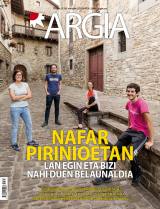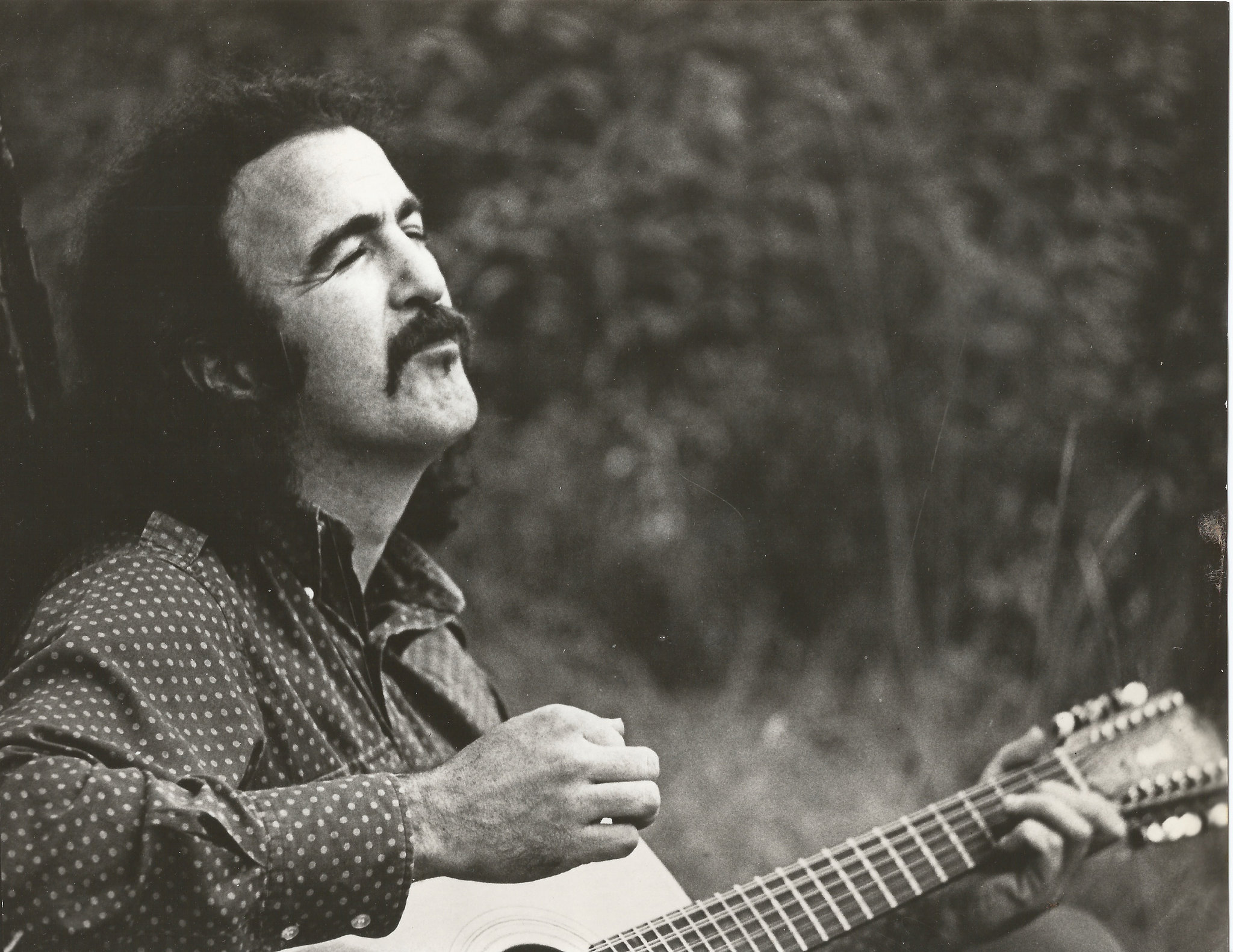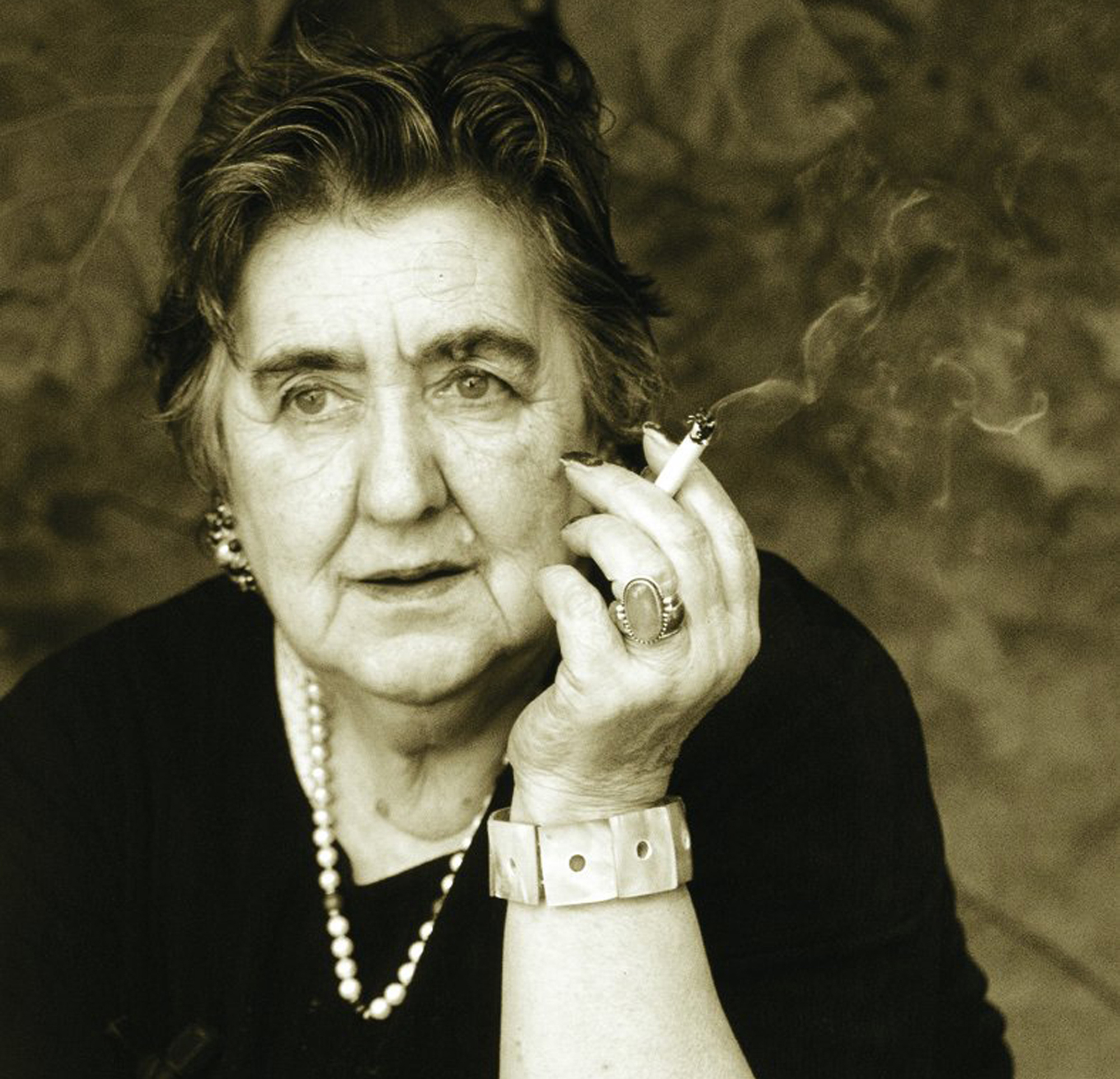"The reader may say the book is bad, but that's not your fault."
- The editorial Igela was born in 1989 with the Department of Universal Literature. There were three tolosarras, two professors – Joseba Urteaga and Xabier Olarra – and a graffiti artist. They wanted to bring texts that were given to the students so that they could become fond of the literature. Since then they have translated the immense quick reading book – a black novel, among other things – and a lot of classics. We talked to Olarra about the novel Ulises by James Joyce, about the novel and the translation. It's the translator of this literary classic. One of the highest summits in 20th century literature. From September 2015 you can read Ulises in Basque.

Ulises became an obsession for Xabier Olarra. It's been two years since Igela published the novel. However, the consequences of giant work still live: “With so much work in a season, I must have earned the rest. Since then, I have not started anything serious, especially what my colleagues are translating. As it is a fundamental work of the editorial, it is what has brought me to correct, to think and to advise,” says the speaker.
What is Ulises in the life of Xabier Olarra?
A book I've dedicated to you for three years. The first impression is that everyday life has been going on for a long time since it leaves Ulysses. I mean, if that work takes you 24 hours a day in three years, so to speak, once you're done, without the pressure of the book, you feel there's time for anything else.
As for the long work and the outcome of the effort, how did you value it?
Well, the truth is that few people waited for it, but there are some readers. Thinking about it very frightly, the sale has gone hand in hand with the forecasts of readers or buyers, and it's not a little bit. Ulises has sold three times as many of the black novels we just published with, which had such an easy reading. So the public was longing, or maybe it's been the longing that we've generated. I would say that, at least, there was a desire to see Ulysses in Basque.
The Basque literature needed Ulises.
This impression has been taken from the linguistic and literary point of view. In 1979, when Ulises came out in Catalan, for example, Joxe Azurmendi said something like this. In a word, he asked if he would not return at the time. He said that literature had to be made available on all sides to contribute to the normalization being carried out by UZEI (Centre for Terminology and Lexicography). Joxe Azurmendi noted that Catalan took a great step on the road to normalization of language, thanks to Ulises.
At that time, there were some doubts about the translation of foreign literature. Translation Ulises was a challenge.
Somewhere. Edorta Jiménez sent me a message telling me that Euskera was not a standard language until Ulises was translated into Euskera. But that was their interpretation. Joxe Azurmendi never said any of that. Around 1979, what was at issue was: “In what field should we put more strength?” We already saw the need to do it on the path opened by Gabriel Aresti and the others of his generation in the world of literature, that this would open the way. At that time, the issue of UZEI in the field of language was also discussed. It was discussed how to open up better and more. In any case, it was thought that if the Catalan translation had given a boost to normalization, it could also have been so in Euskera. The truth is that in 1979 not enough mileage had been made in the literary field to start the Ulysses. He had stayed on the road, and all of a sudden we came up with an answer to that “question.”
Around the novel is an amazing anecdote. In literary tertulias it is said that Gabriel Aresti translated it. Even the idea completely puzzled me. It seems incredible…
And I probably wouldn't return it. He's got more anecdote than he really does, and I don't think so either. It was recently T. S. Returning Four Quartets from Eliot (Four Quartetto), a small Decamerone from [Giovanni Boccaccio] and others. Actually, Aresti did great translations, but I don't think that's true.
It is even more amazing to think that the Civil Guard took the translated – or at least partly translated – novel Ulises out of control.
It is apparently Jon Juaristi, who spread around Ulises de Aresti. The anecdote is attributed to him. However, Juaristi does not say that it happened in a traffic control, but it is said that the police searched the house of Aresti and took the text away.
He is currently in Basque. What is the Basque literature?
There it is, among the 8,000 works that have been translated. We bet and the literature in Basque has gone up to that summit. Or, at least, the criticisms have put it on a summit, it's placed in that panorama. Considering it as such a rich and difficult book, and it was also for us, because it has gone to a difficult place: it has gone to the corner of literature lovers, a book that has become a myth, has given the Basque Country a status of its own, at least we have fulfilled its will from the point of view of literature lovers.
What are the echoes you received from the book? Has it been read?
The cases are rare and those who have read something have said something. There's also something that tells us: “Although I had to start the second round, I have started to read it very seriously.” Edorta Jiménez said “I have started and I have left it again”. However, one cannot think that this has not worked as other novels do. In this sense, I have no complaints. Two or three quotes appeared in our press, because the novel Ulises, if you haven't read it before, asks for some prudence.
Around our J. M. We knew the Spanish edition of Valverde in two volumes. Knowing it, your edition is a “beautiful brick”. It's to be happy.
It's a beautiful book, aesthetically. The edition of Jose Mari Valverde is cheap. Today, with these kinds of paintings, nobody would be published. Not only that. Ulises ends on page 781, here ends [Olarra has pointed us the width of the book, it has 1,017 pages], for that it has a second thread. Valverde said that it made no sense to make a note. They've been the ones who thought about it. What I've summarized is Ulysses Annotated. If a person spent his whole life making observations of Ulysses, not only that, but also of other books by James Joyce, it is worth taking into account. When I read Ulises, long before I came back, I was often stuck, I couldn't go beyond chapter VI. When I was young, we would start reading the book and skip to the famous monologue of the character of Molly Bloom. When I first read in English, I got it by reading an issue with a note. Valverde, when he took out his edition, said that the notes were bothered, of course, because translating and adding notes is a great job. The fact is that, in my opinion, Valverde returned him and gave the reader all the weight that the work carries with it. With this is linked the fact that Ulises is the work that has created the most frustrated readers.
It's one of the most significant novels of the 20th century. Read papers. That’s why he added over 3,000 listings.
Yes, and there are guides to it. Some say that you have to read the book as it comes, without any guidance, entering and moving forward. Others say that “knowing where I’m going, I’m sure to reach the end more easily.” So in the end there are several schemes, a Stuart exegeta Gilbert-enak.Joyceren. Odisea is a reinterpretation of the 20th century work, which describes the Odyssey. That must be clear so that the reader knows where he is going.
On the other hand, for one example, James Joyce mentions Mount Featherbed, but does not clarify its circumstances: What value did the mountain have for the Irish? In it, it is estimated that between the nineteenth and twentieth centuries thousands of people gathered together on the road to independence. An edition would be needed to illustrate this. We have given many references; however, many others have been hidden. In order not to hinder the reading of the novel, we have given the notes in size.
Can you think that after 50 years you will have to go back?
Probably yes. Take, for example, other books: the novels translated 25 years ago [in Francis Scott Fitzgerald] Gatsby el Grande and [in Herman Melville] Bartleby the writer we renewed last year, the first me and the second Juan Garzia Garmendia. When we translated them, for example, there was no Unified Dictionary. Each spoke to the Basque who we had and with what we assimilated in the reading, we had no other criteria. As the translation has evolved, we have more resources, therefore, publishing the translations made about 25 years ago seems a little ugly, we try to innovate if a book is sold out and brought to the situation actual.Con Ulises surely have not been able to reach all areas. So, 50 years from now, it's going to happen to Ulysses, as it happened to the other two, which happens to all the classics.
You said: “Translation has an advantage over creative work, which can be improved.” Do readers have it internalized?
Most readers may think that our job is simply to copy and we attach importance to ourselves. But it often happens that if the texts were as they come, it would be a fuss. The translation is the adaptation to the situation of the text, the way to contextualize its time. The key to translation is to get it right in that effort of writing.
“In translation you have to betray, but you have to know how to do it well”
The lack of shortages, talking about Euskera, gender and other things, the usefulness of Hitano has favored in Ulises.
The Basque country has its advantages and disadvantages. It is a disadvantage, for example, that the female is not a mark in words, while if she has it in verbs, it facilitates reading. I mean, why is Hitano so important in the Ulises novel? For these conversations that one does with oneself can take place in Euskera. The Basques used yours when they spoke alone. Therefore, it is worth highlighting those passages that interspersed in narratives and not in other languages. When you put the Hitan, you know that that character is thinking, that's what gives us the shape of the hika.
The monologue of Molly Bloom has always given something to say, and the ones you have given in Basque, more than anything.
As for the woman, I was crazy. The Koldo Mitxelena said, and I have given her so many laps to that, that the woman also played when she did not do herself directly, in a neutral or unmarked use. If I treated myself, let's say in the mirror directly, "You have crazy," I would say. So it seems that, in principle, that monologue was going to need a touch of attention. I, however, thought, being the occurrences of a woman at two o'clock in the morning, that in this intimacy, when she is talking to herself, one can be justifying noka, and then I decided to do it, among other things, because the times – I refer in particular to the path of equality of women – also come like this. On the social level, the norm may be related to patriarchalism, that would be the neutral, but as the changes go beyond... However, in the introduction of the book, more detailed information has been given on the solutions to this problem and other complicated issues.
Ulises' influence has been impressive. There are people who welcomed him, and they squeezed him ...
Some say that the book is boring, it does not serve any purpose, if it is disgraceful opinions of this kind. The writer Juan Benet said that James Joyce “invented an inner monologue, a boring mold that has no value.” I think that, in general, the importance has been given to the monologues internal to literature. These kinds of opinions are from very “funny” people, whom they like to highlight. Literary authorities T. S. Eliot, García Márquez or Faulkner are, therefore, as Benet imitates them, with second-hand patent, what is he criticising?
What is language in your life?
A lot of things. Among other things, the main way to try to understand this world is what sets us apart from other animals in relationships. In particular, in my life, the Basque Country, and to start from home, has been a voice against enemies and against drought, and against all Christ. They decided to keep our grandparents, parents and companies, and that gave the Basque his ideological and sentimental political burden. Everyone lives the language one way and we have lived it that way. One time a friend told me: “Why don’t they publish in Spanish?” Because for that there are others. “If it wasn’t for publishing in Basque, I wouldn’t have created an editorial,” I told him.
“If it wasn’t for publishing in Basque, I wouldn’t create an editorial”
The Basque country needed translators.
The Pott band said they started writing, because they didn't find the books they wanted in Basque. We too, otherwise, began to translate books that we did not find in Basque, it is another option and another route, surely more embarrassing. In creation you are evident, as a writer, the responsibility for translation is not yours. The responsibility lies with the writer, the reader may say that the book is bad, but that is not your fault.
It's a topic, but how do you experience the translate tore traditore?
You have to betray, but you have to know how to do it right.
Will the literature of current writers be imitated in the future?
I think so. Our writers have done the literature that was needed in the 20th century, and not just because they've worked in Euskera. In other words, they have also managed to translate into Basque literary currents from other major languages, such as Spanish or French, and we are now together with other languages. That began to happen in the 1960s, and those authors start doing the same thing that was done in Europe. Because it starts every day [Ramón Saizarbitoria's novel] in the line of the French Román Nouveau, and then they are two examples of 100 meters. The Basque literature that is taking place both in the last century and today is similar to the world literature, not only in terms of the development of the Basque Country, but also in terms of literature, thanks to our writers, giant steps have been taken. The problem is the only one, the appreciation our children give to that, but well, the resource is there, there you have the tool.
Is that tool influencing young people?
It has little influence in the Basque world.
Have Basque writers taken into account the universal literature in Basque?
Some of them are, but I think it's a minority. What has been published is fundamental, but Basque writers would have read much of it in Spanish or in French. It has then been published in Euskera, but the exception is that the author is a reader of these texts translated into Euskera. But perhaps the writers of young generations have the opportunity to read in Basque some book or author they have not read. What are you going to do? A few of them follow it and most of them do not, but it is my impression.
Ekain honetan hamar urte bete ditu Pasazaite argitaletxeak. Nazioarteko literatura euskarara ekartzen espezializatu den proiektuak urteurren hori baliatu du ateak itxiko dituela iragartzeko.
Aste honetan aurkeztu da Joseph Brodskyk idatzitako Ur marka. Veneziari buruzko saiakera. Rikardo Arregi Diaz de Herediak itzuli eta Katakrak argitaletxeak publikatu du poeta errusiar atzerriratuari euskarara itzuli zaion lehen liburua.
"There were women, there they were, I met them, but their families locked them in the mental hospital, put them in electroshock. In the 1950s, if you were a man, you could be a rebel, but if you were a woman, your family would lock you in. There were some cases, and I met them... [+]
Gauza garrantzitsua gertatu da astelehen honetan literatura euskaraz irakurtzea atsegin dutenentzat: W. G. Sebalden Austerlitz argitaratu du Igela argitaletxeak. Idoia Santamariak egindako itzulpenari esker, idazle alemaniarraren obrarik ezagunena nobedadeen artean aurkituko du... [+]
Asteazken honetan aurkeztuko dituzte Erein eta Igela argitaletxeek Literatura Unibertsala bildumako hiru lan berriak, tartean Maryse Condéren Bihotza negar eta irri (ene haurtzaroko istorio egiazkoak). Joxe Mari Berasategik euskaratua, idazle guadalupearraren obra... [+]
Wu Ming literatur kolektiboaren Proletkult (2018) “objektu narratibo” berriak sozialismoa eta zientzia fikzioa lotzen ditu, Sobiet Batasuneko zientzia fikzio klasikoaren aitzindari izan zen Izar gorria (1908) nobela eta haren egile Aleksandr Bogdanov boltxebikearen... [+]

























